On Dr. Luke Wood’s first day as Sacramento State university president in July 2023, he sat down with athletic director Mark Orr for a meeting. Over three decades in Division I, the Hornets had built a successful FCS program, with a football team coming off multiple conference championships. But Wood had higher aspirations.
“I said, ‘What’s it gonna take for us to be FBS?’” Wood tells Front Office Sports. The benefits are enormous, he notes, and stretch far beyond the athletic department. The visibility, revenue, and marketability that come from an FBS athletic department help with everything from university enrollment to local economic impact.
There are major hurdles, though. The NCAA-mandated transition process, which officially takes two years, is both expensive and time-consuming. Schools have almost no chance of getting an FBS bid unless they can prove, through resources and investment, that they can compete at the next level.
Still, Wood, Orr, and community leaders have charged ahead.
The Hornets launched a PR campaign touting their efforts: They have announced plans for a new, 25,000-seat football stadium, a partnership with the Sacramento Kings for men’s and women’s basketball to play in their arena should they reach the FBS level, and $35 million in NIL (name, image, and likeness) commitments. Since a recent round of realignment opened up spots in the Pac-12 and Mountain West, that dream has become arguably even more realistic.
They’ve pushed their way into conversations about expansion, and they are now on the short list of FCS programs that could receive a call-up to college football’s big leagues. “I can confidently say that we’re ready for FBS,” Wood says.
Before Wood, a Sacramento State alumnus himself, became university president, the school hadn’t mounted a major effort to reclassify into the FBS level beyond commissioning a feasibility study. But he got the ball rolling. He asked the athletic department to update the study’s numbers, and the program started upgrades to multiple facilities, from basketball to gymnastics. Wood also engaged in more than 90 “listening sessions” with athletes to learn how to improve the Hornets’ offerings.
Before a school can even submit an application to the NCAA, it must secure a bid from an FBS conference, serving as a guarantor of sorts that the school will have a league to land in. But no conference will offer a bid if the school can’t demonstrate it has the funds to pay for the NCAA’s FBS requirements, including a minimum scholarship offering and a $5 million application fee.
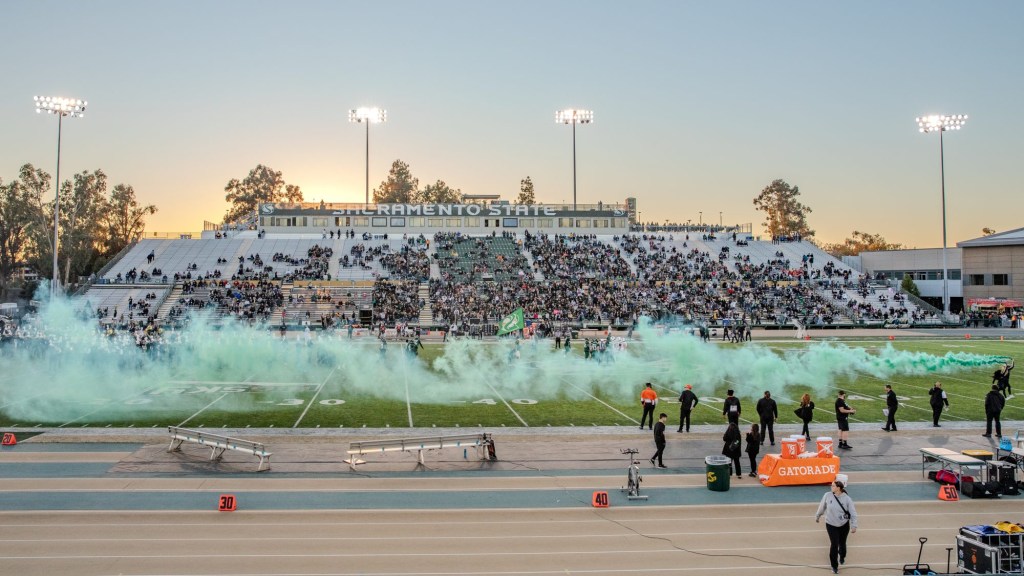
Sacramento State already boasted some pro-FBS factors. It has a robust and diverse student population of around 31,000, and it is situated in one of the top 20 media markets in the country.
But financially, it needs to make up ground: In 2022, it operated with an athletic department budget of $35.9 million, according to USA Today. The median Mountain West budget for that year, by comparison, was $50.4 million, according to the Knight-Newhouse database. Other intangibles, like stadium capacity and NIL offerings, may not be part of the NCAA’s current checklist. But an FBS school is unlikely to offer a bid without them.
In other words, the Hornets couldn’t make the FBS jump alone.
A decade ago, the Sacramento Kings were sold to owners who threatened to take the NBA franchise out of its current home. Local community and business leaders mounted a successful campaign to save them.
In September, many of those same leaders came together to form the Sac-12, a committee dedicated to amassing the resources necessary to get the Hornets to the next level. The group is a who’s who of local politics and business executives, including California State Senator Angelique Ashby, California State Assemblymember Stephanie Nguyen, Sacramento City Council Member Eric Guerra, and former San Francisco 49er and Sac State alum Otis Amey. Joshua Wood, a Sacramento State alumnus and CEO of the Sacramento Region Business Association, is Luke Wood’s twin brother.
The Sac-12 launched formally Sept. 13, the day after the Pac-12 announced it would take four schools from the Mountain West. The university released its updated feasibility study and its goal of FBS status shortly afterward.
Mid-September was the perfect time to begin publicizing an effort that had been more than a year in the making. Realignment was in the news, and it was clear that two FBS conferences with West Coast footprints would be taking calls for new members. Conference realignment “happens pretty periodically,” Wood says. “It’s about being ready for the next wave.”
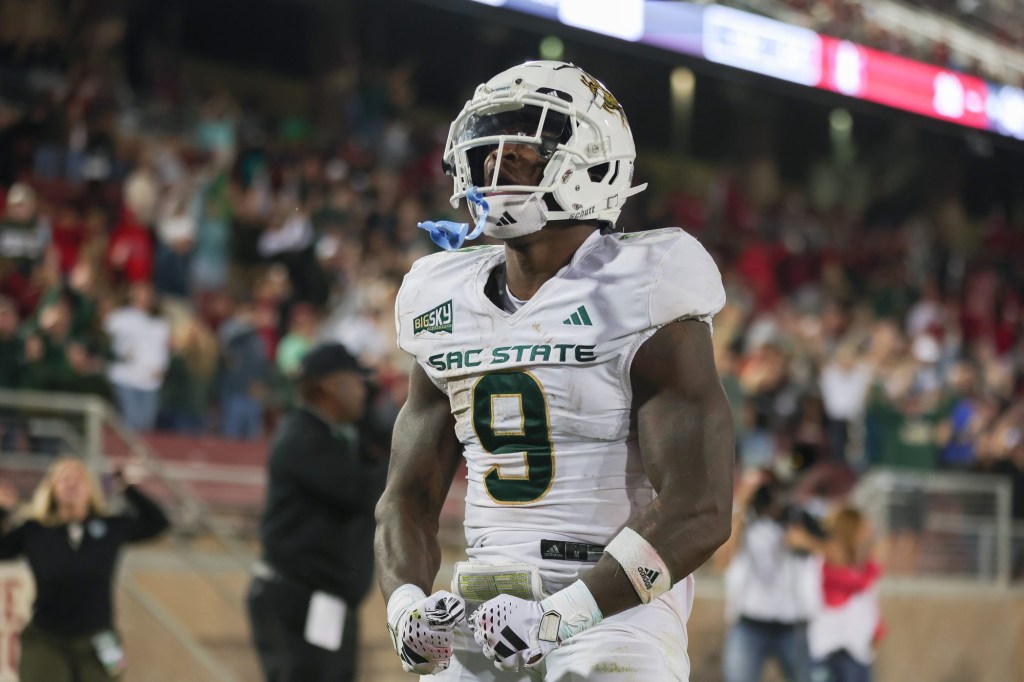
On Sept. 26, the school announced plans for a new stadium project for the Hornets football team, which would seat at least 25,000. Less than a week later, the Sac-12 announced it had helped secure a partnership for the men’s and women’s basketball programs to play conference home games in Golden 1 Center, home of the Sacramento Kings, if the program was elevated to the FBS level.
Perhaps the splashiest announcement: On Sept. 30, the Sac-12 announced it had secured $35 million in donations for NIL deals, FOS previously reported—a number that Wood says has grown even since the announcement. The Sac-12’s ultimate goal is to reach $50 million.
“We understand the transition from FCS to FBS takes time and commitment,” a Sac-12 spokesperson told FOS in September. “But the university, the athletes, coaches, and supporters are ready to compete at the highest level, and the university and community are ready with the support and resources to get the Hornets there.”
Where could the school land? The Sac-12’s ultimate goal is the Pac-12. But Wood says his priority is simply getting the school to the FBS level.
The Pac-12 is, generally, a possibility. But to maintain its status as an FBS conference, the league needs to have eight full FBS members by 2026 (schools that fall below eight have a two-year grace period to rebuild, per NCAA rules). So the Hornets wouldn’t be able to complete the process in time to count as an eighth member. They could, however, join the Pac-12 as a ninth or 10th member—and commissioner Teresa Gould has said she’s interested in potentially more than eight programs.
For now, though, the Pac-12’s expansion conversations are on pause, a source confirmed to FOS. Instead, the league will work to secure a new media-rights agreement with its seven existing members, and it will then turn back to expansion.
The Mountain West also needs one more FBS member, but it has until 2028 to reach the magic number of eight. In that case, Sacramento State could count as its eighth member. But there’s competition here, too, as the conference has received interest from multiple schools, FOS previously reported.
Conversations have taken place between Sacramento State and multiple FBS leagues, FOS confirmed, but their current status is unclear. (Wood, for his part, declined to comment on conversations with any conferences.)
When an FBS conference finally does extend a coveted invitation, though, Sacramento State will be primed for the opportunity. “We’re not just looking to be an FBS school,” Wood says. “We want to be an FBS school that wins.”
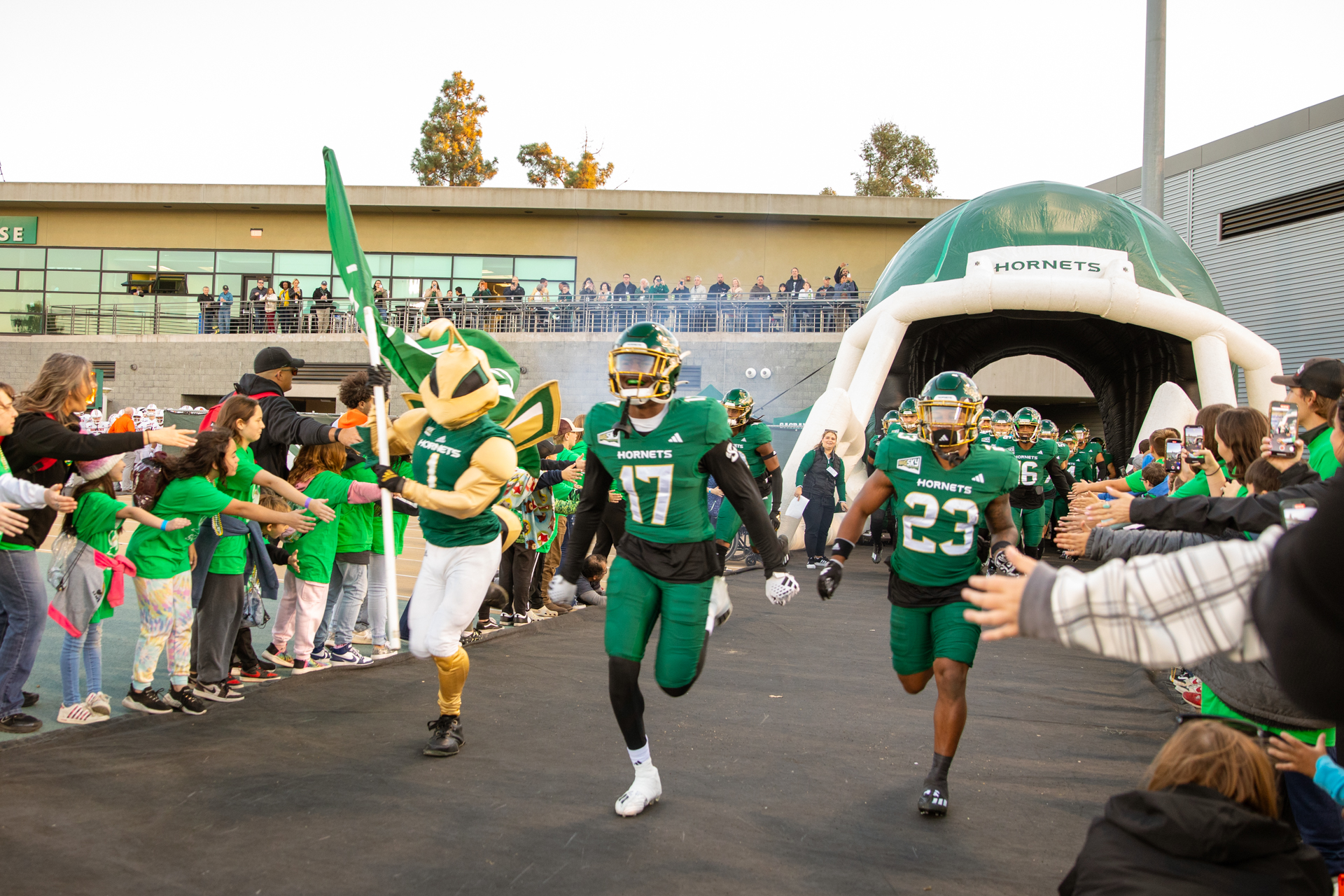

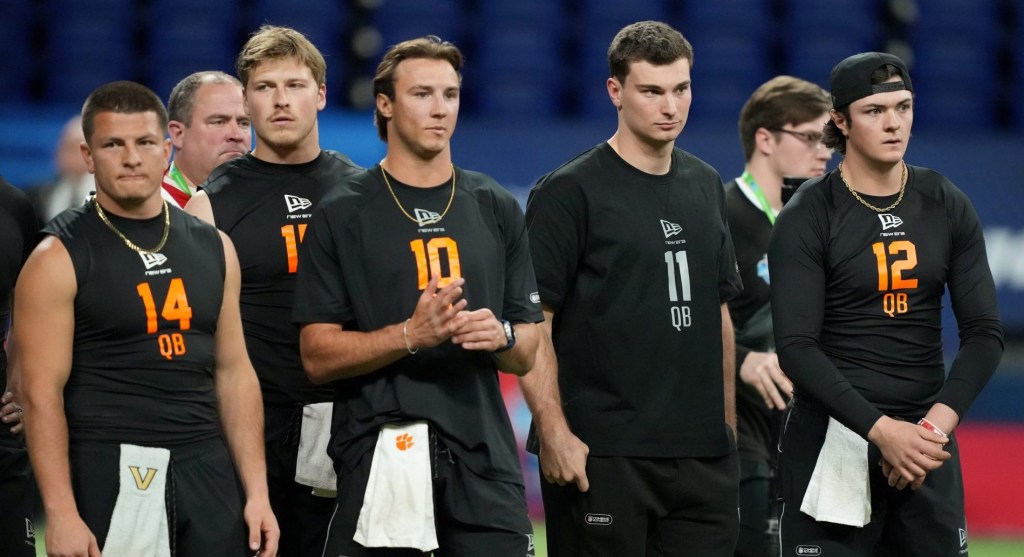

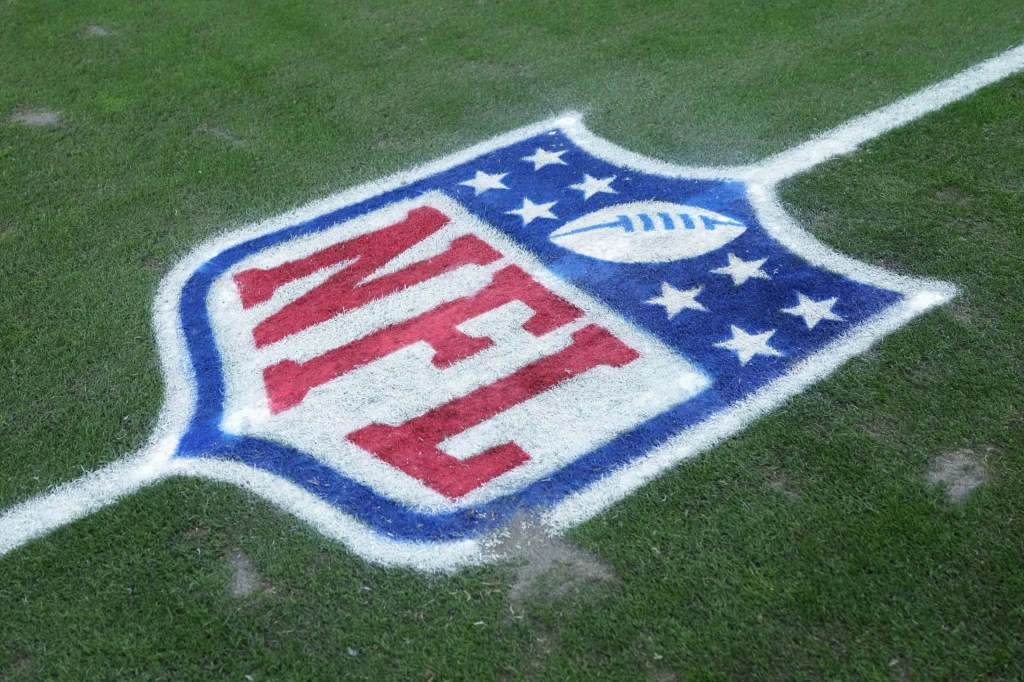
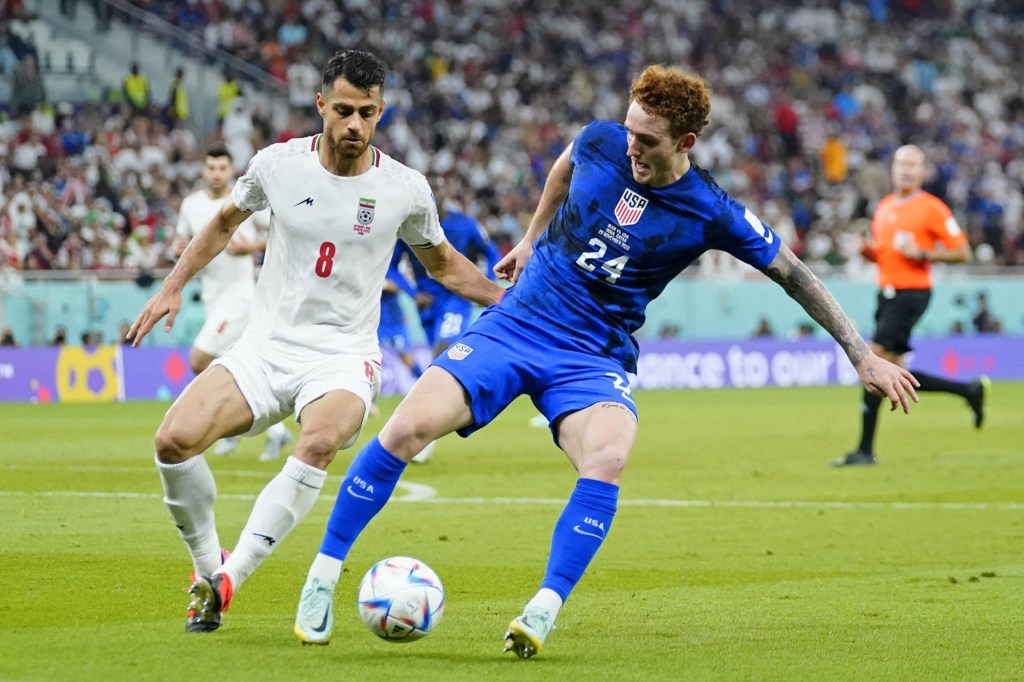

![[Subscription Customers Only] Jun 15, 2025; Seattle, Washington, USA; Botafogo owner John Textor inside the stadium before the match during a group stage match of the 2025 FIFA Club World Cup at Lumen Field.](https://frontofficesports.com/wp-content/uploads/2026/02/USATSI_26465842_168416386_lowres-scaled.jpg?quality=100&w=1024)
![[Subscription Customers Only] Jul 13, 2025; East Rutherford, New Jersey, USA; Chelsea FC midfielder Cole Palmer (10) celebrates winning the final of the 2025 FIFA Club World Cup at MetLife Stadium](https://frontofficesports.com/wp-content/uploads/2026/02/USATSI_26636703-scaled-e1770932227605.jpg?quality=100&w=1024)









